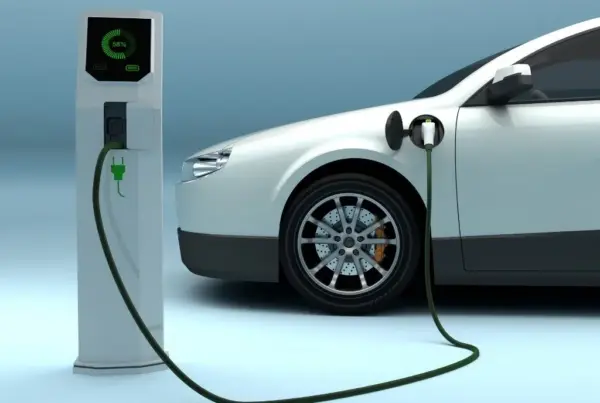What is Motivation?
Motivation can be expressed as the inner strength necessary to achieve a goal. Setting goals, taking small steps, thinking positively and rewarding oneself help to increase motivation. A person needs motivation to get rid of excess weight, achieve goals in business life and many other behaviours. In addition, motivation can be expressed as a biological, social, emotional and cognitive source of human behaviour. Many methods can be used to provide motivation.
Motivation is defined as the internal and external types that mobilise a person to achieve a goal. The inner drive is important for a person to perform the action. Thus, the person provides energy to meet his needs by turning towards a goal. People may need motivation to create their wants, needs and goals. The person realises his inner values and sense of satisfaction through motivation.
Why is Motivation Needed?
Motivation is the state of being able to act in line with a determined goal and to ensure stability in the movement process. Individuals need to move towards a certain goal in order to realise what they want in their lives. In this direction, the progress of the person by fully activating his social, physical, emotional or cognitive abilities is related to providing motivation. The word motivation, which is frequently used in daily language, actually expresses the state of desire and excitement. In Turkish, the equivalent of this word is motivation. For this reason, it covers a much wider and more complicated state than moving to the target.
This concept, which comes into play at any age, creates a driving force in the person and enables him to achieve what he wants to do in life more easily. The state of motivation, which is expressed as an important component of success in education and business life, includes additional situations such as discipline and good control of time. From this point of view, people who are motivated to study can concentrate better and focus their attention on the subject. In general, the points where motivation is needed can be listed as follows:
People who can manage this process can carry the state of energy and enthusiasm continuously. Thus, the person’s resistance to difficulties can increase.
It is an intermediary in achieving the goal and thus enables successful people to rise in society.
Motivation also encourages people to be efficient, organized, and desirous to achieve their dreams and aspirations.
It can take controlled and confident steps. In this way, he/she can stay away from addiction or risk-taking processes that will lower himself/herself.
The person focuses on constantly improving himself/herself individually.
He/she gains the ability to shape his/her own life without being dragged through life by others.
The person whose struggle power increases can reveal his/her own potential without giving up.
Especially in the business environment, motivation is an indispensable element for the employee’s productivity and adoption of the job. In some workplaces, this criterion is given great importance and it is observed that more than 90% of the personnel get efficiency. Companies far from corporate identity, on the other hand, try to find a solution by dismissing people who cannot be motivated, and there are studies showing that they get less than 20% efficiency from their existing staff.
Personnel who cannot establish this process in their workplaces are distracted and have problems focusing. Therefore, their productivity is low, and they are far from working goal-oriented.
What are the Types of Motivation?
Motivation types can be classified by evaluating them in different areas. However, in general, depending on the shaping of behaviour, the two types of motivation can be classified as follows:
Intrinsic motivation
The emotions one feels inside and the capacity to mobilise these emotions are very important. In this sense, in order to achieve something, the person must first seek the power within himself/herself. People with this power can act spontaneously without the need for an environmental or external stimulus. At this stage, knowing one’s own desires plays a role in making the goals to be realised more permanent and robust. It is a driving force that the person will obtain without any reward. Therefore, some researchers state that this state of motivation is preserved in the purest form. For example, it is possible for a person to start a diet and continue it without breaking it, and for a person who is preparing for the university exam to work for a year without breaking it is possible with the preservation of this inner strength. People with willpower therefore have the power within themselves to achieve lasting success.
External motivation
It refers to an environmental or external influence in order to obtain the desired results. There is no internal feeling of pleasure here; there is a positive resource that the person will obtain as a result of his/her behaviour. For this reason, the person’s state of desire is completely provided from outside; this situation is under the control of the punishment or reward mechanism. For example, external prestige, title, reward, money or praising words are in this group. Most of the time, when people cannot create internal driving force, they become open to external guidance and suggestions. It tells the way of walking to the goal, with the suggestion coming from outside without seeing its own power.
How to Provide Motivation?
More than one method can attract attention to ensure motivation. In general, situations that positively affect the motivational process can be listed as follows:
Emotional intelligence (EQ) development
It is necessary to better understand the people around you and to discover your own self-awareness.
Making the other person feel valued
When employees feel valued, they are more willing to realise the company’s goals and can work with maximum efficiency. In order to ensure this, it is important for the manager to have attitudes and behaviours that will support the employee’s thoughts and that he/she is valued.
Strengthening the language of communication
Coming together with employees at regular intervals, keeping the communication channel strong or chatting with employees during breaks is a positive trigger.
Using some positive sentences used in communication
In order to make employees visible, it is supportive to thank them, appreciate them or use words that increase their self-confidence.
On the other hand, it is recommended to support some individual characteristics in order to increase one’s internal trigger power. From this point of view, some practical methods can be listed as follows:
A person who knows himself/herself has an idea of what he/she can do. Therefore, knowing one’s abilities, strengths, and weaknesses is effective in reaching the goal more easily.
It is also important to engage in activities that increase self-confidence. In this sense, caring about oneself and trusting one’s potential are among the positive effects. Remembering the positive achievements in the past and thinking that you can do it in the future requires a triggering power.
Time management can be achieved through planned work. For this reason, making weekly, monthly, and annual programs brings a planned way of working to the agenda.
It is recommended to stay away from procrastination by adopting a patient attitude. Result-oriented approaches contribute to the planned and controlled execution of the process leading to the goal.
Placing technological devices on the desk or decorating the working environment according to personal tastes provides great support.
Short breaks during working time also support the re-energisation. For this, it is important to pursue different hobbies according to your interests. At the same time, activities such as walking, listening to music, reading books, and watching films can be done.
Frequently Asked Questions About Motivation
What are practical ways to increase intrinsic motivation?
It is important for an individual to recognise his/her interests well in order to motivate himself/herself. At this point, performing favourite hobbies in one’s areas of interest is one of the most motivating steps.
Is external motivation alone sufficient for stability?
The triggering power coming from outside may decrease over time when the stimulus disappears. For this reason, external motivation can turn into internal motivation over time and become permanent by discovering one’s own power.






